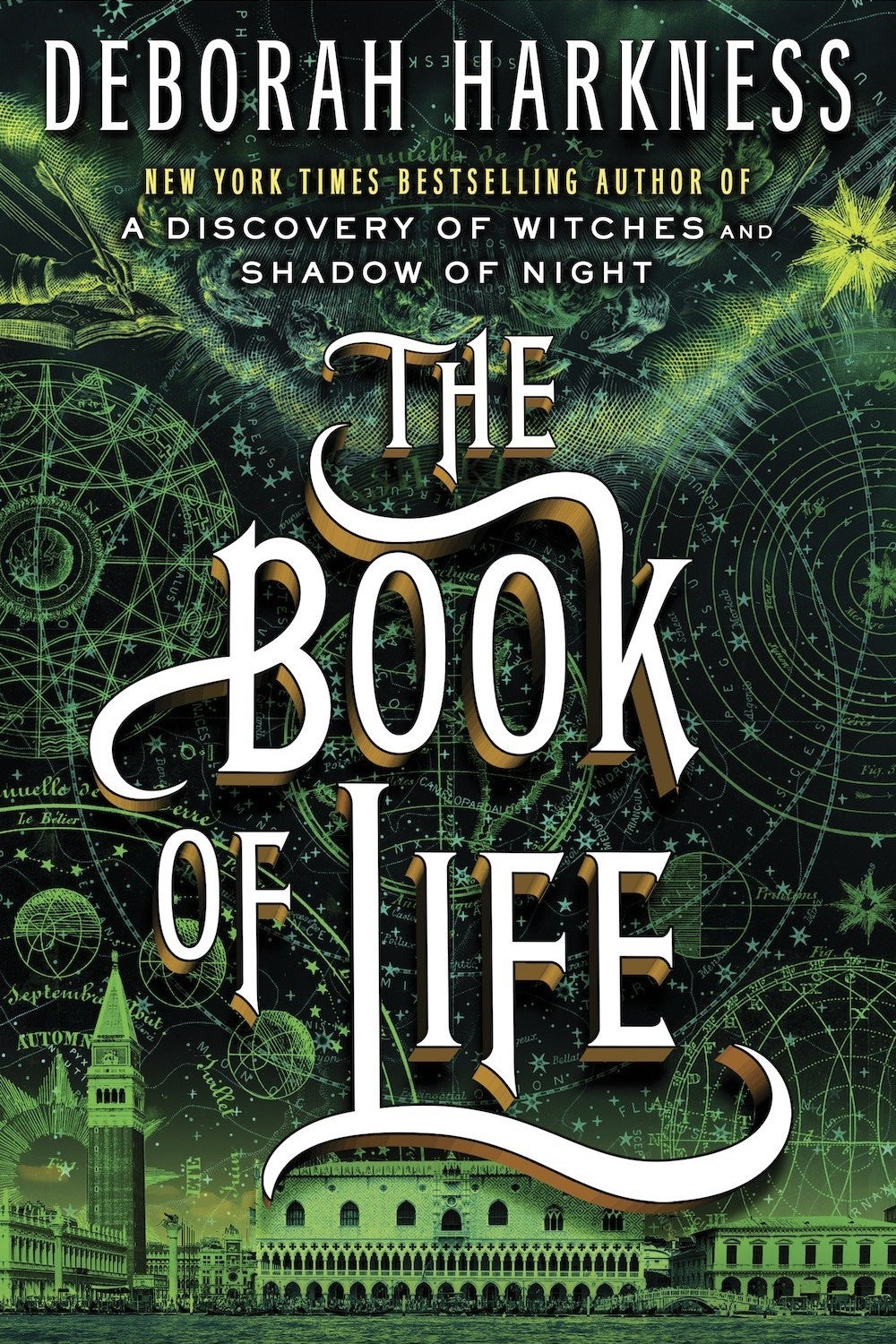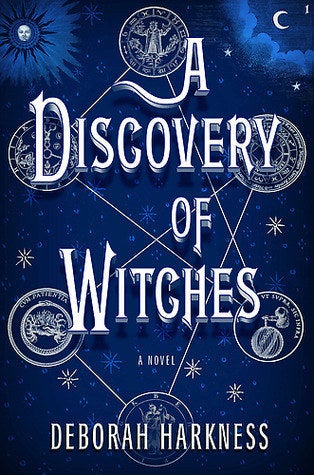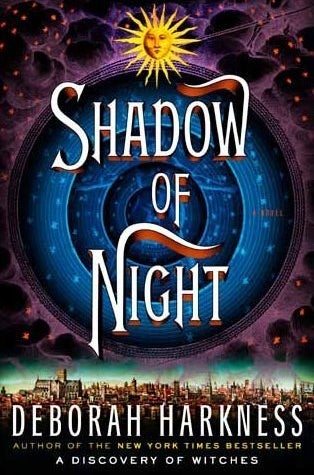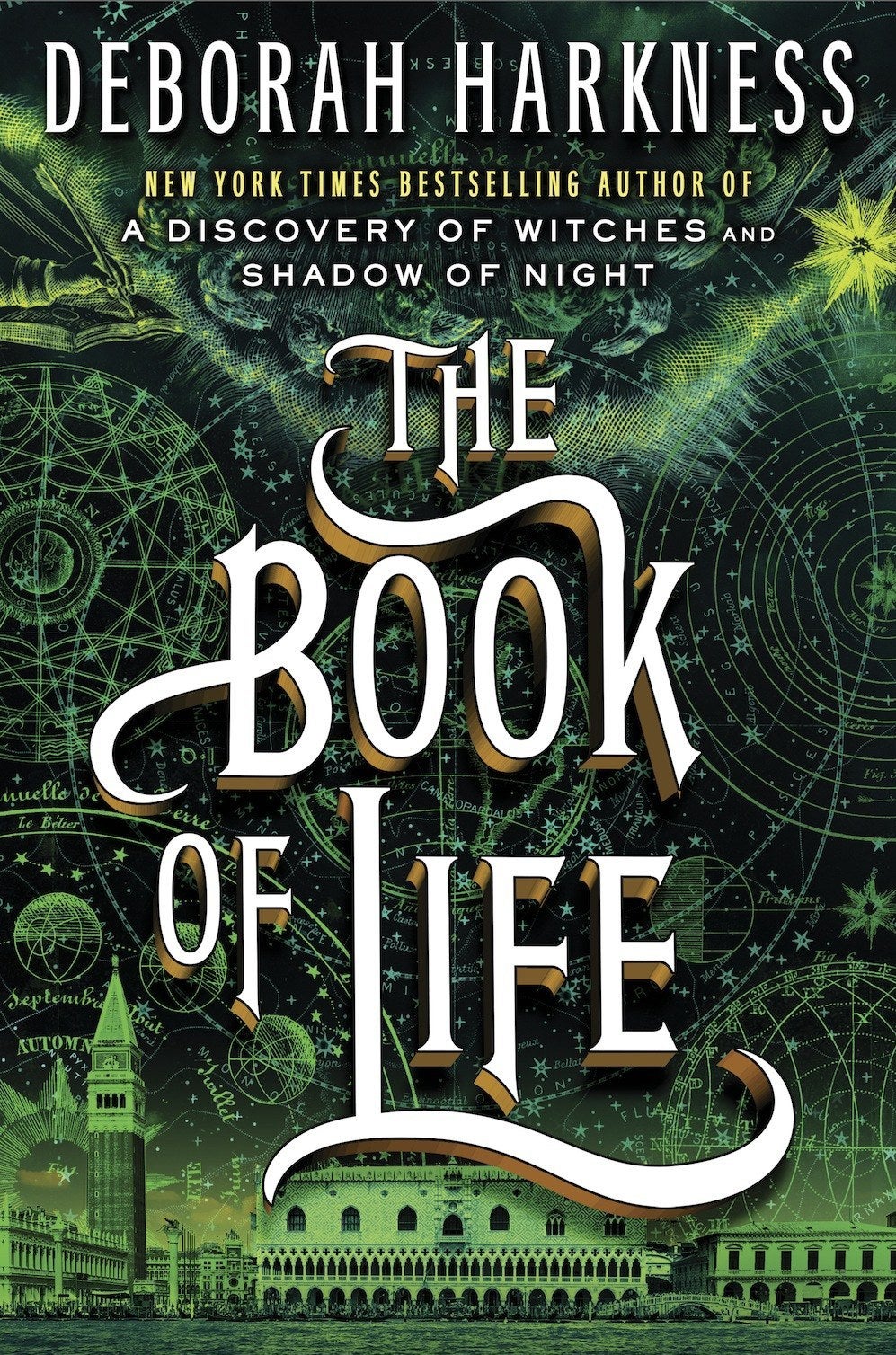Deborah Harkness has brought the world of A Discovery of Witches back to life with the third book in the trilogy, The Book of Life. This truly spans the geeky realms with witches and vampires, time travel, and science labs all thrown together in pursuit of one ancient book. Here are a few things we learned after sitting down to talk about the trilogy's final installment:


1. She is fascinated by families — in the past and now — and this fascination leads to some very interesting family structures in her books:
"I really wanted to explore things like what happens when you're raised by an aunt or aunts, not your parents because your parents have died, or you're adopted into a family like Matthew was, and like Diana and Matthew do for Annie and Jack, and a kind of a version of a nuclear family so to speak with Diana and Matthew. I wanted to show that there were a wide range of ways you can mother."
2. She sees magic as a technology and that may be why it is so seamlessly woven into her narrative unlike other fantasy novels:
"Magic was technology that brought things that were far away close, made things that were invisible visible, and made it possible for you to communicate with people who were far away. And if you think about all of the modern technology that we have, our modern tech — internet, computers, Google, all these things — are kind of the wish list of what people turned to magic for in the 16th century."
3. She sees Matthew as a very adaptable character despite his great age:
"Matthew is on Facebook. He posts more than Diana. He posts lots of scientific news and bad behavior from his lab assistants and shows us items from Miriam's scientific T-shirt collection…
When you think about it, a vampire would have to be very chameleon-like. He'd have to be able to adjust and adapt. And this is one of the reasons why I chose the epigraph I did … because if you wanted to wander down the street in full body armor with a sword because that is comfortable to you, you wouldn't last very long. There really is kind of an element of espionage. You'd have to be James Bond-like or Borne with the ability to switch identities. And I think people would imagine that he'd be stuck in his ways, but no, he has certain things that he treasures like his watch and his pen, but otherwise he has to really adapt and change. That's really what his life requires to survive."



4. She believes in honest heroines and wrote Diana to be as believable as possible.
"I can see in retrospect how someone reading it who wants a kind of more cartoon stock heroine may be disappointed in Diana. However women who train with paramilitary units and parachute out of airplanes, and whose first response to everything is that they are going to kill the other person and kick ass — I just don't find very relatable. I don't think that is the only way that a woman can or should be strong. I think that's quite problematic to only have heroines who are kick ass. It's just as problematic to only have heroines who are in the kitchen.
It was much more interesting to me to try to explore how a woman who was 33 could grow into and exercise all of her powers. Not just her physical, not just her strategic powers, but her thoughtfulness, her empathy, her capacity for love, her capacity for nurturing, her capacity to be a partner. That to me is the essence of feminism. It's about telling women they can have whatever power they want and need. They don't have to fit into a cartoon stereotype of any kind."
5. She admires parents who can let their children go and tried to create them in her books:
"I adore Ysabeau de Clermont. I just love the way she is kind of with all of them in that Ysabeau is one of those people who just can let go of the kids and allow them to make their own mistakes and still be there for them. That's the kind of parenting I admire simply because I don't think I would be capable of it myself. I don't have children, but I would find it very difficult to not hover and be overprotective and want to save them from all the bumps and scrapes of the world. I think Ysabeau is that kind of mothering that is much more about letting the child fly to fall and being there to pick up the pieces which still I admire. Whenever I see it, I always imagine their kids have a very different kind of skill set than the ones who are never allowed to fail or struggle or make mistakes."
6. She knows people want to know what’s next:
When I posted on Twitter that I'd sent the book in — you know, it was all finally done — I think I got a [tweet] within three minutes saying, "What are you going to write next?" and I was thinking, I haven't slept in three months.
7. This really is a trilogy with a finite end:
"The story of Diana and Matthew and Ashmole 782 is wrapped up in this book. I love these characters. Once I've caught up on my sleep, who knows what will happen? It would not be a continuation of this story. It would be other stories in the universe. I have other ideas for other projects that I might want to do instead."
8. No, she really won’t tell you who she’s dream-cast for any hypothetical production of this on television or film, though Tumblr is filled with ideas:
"Poor Matthew and Diana will have enough problems in their lives than to have to deal with not being the author's top pick."
***
Rachael Berkey is a reader, writer, and curator of all things entertainment. She has written and created content for pop culture, entertainment, literary, and nonprofit websites for the last four years. Follow her on Twitter.
